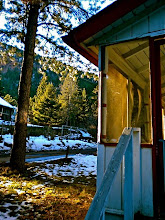Ages 15 up

Mad cow disease sucks—just ask sixteen-year-old Cameron.
Memory loss—check
Personality changes—check.
Hallucinations—check.
Seizures—check.
Involuntarily jerky movements (not to be confused with being a jerk, which Cameron can be)—check.
He’s got all the symptoms, and only a limited time left to live. But the worst part of the disease is that it basically will turn his brain into a sponge, robbing him of the dignity to be himself in his final days. Understandably, Cameron is bitter. He is not popular—doesn’t really fit in anywhere in fact. His relationship with his family has been deteriorating for the past ten or so years, and he’s never had sex. So, yeah, he’s ticked off.
But then hope comes from an unexpected source: A pink-hared punk angel named Dulcie shows up in his hospital room and sends him on a quest to save the world, and hopefully along the way he can save his own life. There are two catches. 1. He has to bring along his hospital roommate: Gonzo, a paranoid, hypochondriac, gaming dwarf. 2. They only have a limited amount of time to save the world before Cameron’s health deteriorates to the point he can no longer function.
This is the trippiest road-trip book since Fear and Loathing in Las Vegas.
Cameron, a modern-day Don Quixote, heads for the road in a beat-up caddy called Rocinante, tilting at his own windmills: The Fire Giants. But whom is he really fighting, and what is he fighting for? This book will leave the reader with tons of questions. What determines who lives and who dies? And what is reality anyway?
Full of nods to American pop-culture (snow globes, a garden gnome who may or may not be a Viking god, video games, the coyote and the roadrunner, reality TV, etc.), this book will leave the reader alternately smiling, laughing, crying, nodding in agreement, and scratching her head. This is a tough book to categorize, but for the reader who wants to ponder some of the questions of the universe, it is an amazing journey.
Caveats: Premarital sex, bad language, drug and alcohol use, crude humor, criticism of blind/fake faith.
Possible discussion topics: The nature of truth, the nature of reality, life after death, reality TV, the nature of happiness, Don Quixote.
Here are some questions to get you started:
1. There’s some question about whether or not this road trip is real. Does it matter to you one way or another. What does it mean if all of it is just a hallucination? Is Gonzo just a figment of his imagination? Is Dulcie? What difference would that make to you? Cameron experiences some major moments of redemption on his road trip. If this is all a hallucination, is this real redemption? Or it is just wishful thinking.
2. Music plays an important part of Cameron’s journey. (Initially mocking the Great Tremelo. going to see Junior Webster, The Copenhagen Interpretation’s connection to saving the world). What do you think Bray is trying to say about the importance of music?
3. Lots of images and ideas are replayed through Cameron’s life prior to diagnosis and during his road trip. (Snow globes, garden gnomes, Don Quixote.) What does each of these mean—both to Cameron and symbolically.
4. Schrödinger’s cat is mentioned in the very beginning, before Cameron’s diagnosis. What does this reference have to do with Cameron’s experience on the road.
5. Cameron says at one point, “There is no meaning but what we assign. We create our own reality.” Do you agree with that? Is there truth beyond what we assign? Why or why not?
6. There are many allusions to Don Quixote within Libba Bray’s novel, and many similar themes (love, sanity vs. insanity, a tall, thin hero and a world-weary short sidekick, the flawed heroine, the decrepit steed, a satire of truth). There has been debate about what Don Quixote is: Is it a comic novel? A satire? A social commentary? A heroic novel? Bray’s novel is similarly difficult to categorize. How would you define Going Bovine? If you are familiar with Don Quixote, what other connections do you see?
If you liked this book you might enjoy: Deadline by Chris Crutcher, Jellicoe Road by Melina Marchetta, The White Darkness by Geraldine McCaughrean, The Adoration of Jenna Fox by Mary Pearson
